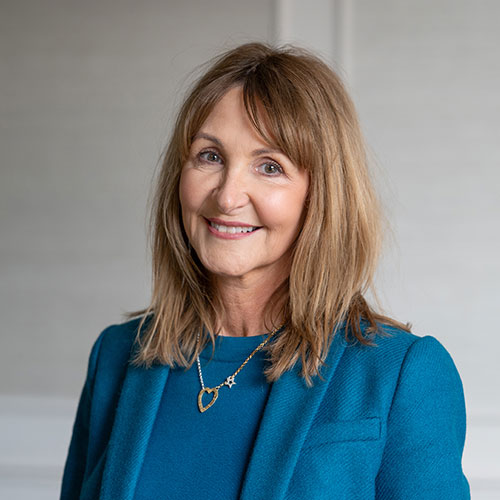Dementia is a complex condition that affects memory cognitive function and daily life. Receiving a timely and accurate diagnosis is essential for accessing the right support treatment and future planning. Understanding the dementia diagnosis process can help individuals and families navigate the journey with confidence and clarity.
Dementia Diagnosis Process
Diagnosing dementia involves a comprehensive assessment that considers medical history, physical examinations and a series of cognitive and neurological tests. Because dementia can be caused by a variety of conditions including Alzheimer’s disease, vascular dementia and Lewy body dementia, a thorough assessment is necessary to determine the specific type, severity and treatment plan.
The dementia diagnosis process generally follows these key steps:
- Initial Consultation – A GP or healthcare professional will discuss symptoms, review medical history and any concerns regarding memory or cognitive changes.
- Early Dementia Screening – Simple tests and questionnaires may be used to identify signs of cognitive decline.
- Cognitive Function Tests – Standardised tests assess memory, problem-solving skills, attention and language abilities.
- Medical Tests for Dementia – Blood tests and other laboratory assessments rule out underlying conditions such as vitamin deficiencies or thyroid disorders.
- Imaging Tests – Brain scans such as MRI for dementia or CT scan for dementia detection help identify structural changes in the brain.
- Neurological Evaluation Dementia: A specialist may conduct an in-depth assessment to evaluate brain function and rule out other neurological conditions.
Early Dementia Screening
Early diagnosis plays a vital role in effectively managing symptoms and planning future care. Early dementia screening generally includes brief cognitive tests and observational assessments to evaluate an individual’s cognitive function. A GP may ask straightforward questions to assess memory recall, problem-solving skills and overall cognitive ability. These initial screenings help determine whether further testing or intervention is necessary.
If concerns persist, individuals may be referred to a memory clinic or cognitive specialist for more comprehensive assessments. In addition, input from family members is invaluable, as they may have observed changes in behaviour or cognitive abilities over time. Early detection and intervention significantly improve the ability to manage the progression of dementia and provide better care planning.
Cognitive Function Tests
Cognitive function tests play a vital role in diagnosing dementia. These assessments measure different aspects of brain function including:
- Memory – The ability to recall recent events names or details.
- Language Skills – The ability to find the right words and follow conversations.
- Problem-Solving Ability – Completing tasks that involve reasoning and logic.
- Attention and Concentration – The ability to focus on tasks and retain information.
Commonly used cognitive function tests include the Mini-Mental State Examination (MMSE) and the Montreal Cognitive Assessment (MoCA). These tests help identify patterns of cognitive impairment and determine the severity of symptoms.
Medical Tests for Dementia
Since some medical conditions can mimic dementia symptom, a range of medical tests for dementia may be conducted to rule out other possible causes. These can include:
- Blood Tests-To check for vitamin deficiencies, infections and metabolic conditions that could affect brain function.
- Thyroid Function Tests – To rule out thyroid disorders that may contribute to cognitive issues.
- Liver and Kidney Function Tests- To assess organ health and detect any conditions that could impact cognitive function.
- Genetic Testing- In some cases genetic tests may be recommended to determine the likelihood of inherited forms of dementia such as early-onset Alzheimer’s disease.
These tests help ensure that other treatable conditions are not mistaken for dementia and provide valuable insights into an individual’s overall health.
MRI for Dementia
MRI for dementia is a critical tool in diagnosing cognitive decline. Magnetic Resonance Imaging (MRI) provides detailed images of the brain allowing doctors to detect structural changes such as:
- Shrinking of specific brain regions associated with Alzheimer’s disease
- Signs of vascular dementia including evidence of strokes or reduced blood flow
- Brain abnormalities that could indicate other neurological disorders
MRI scans help healthcare professionals distinguish between different types of dementia and assess disease progression over time.
Diagnosing Cognitive Impairment
Before confirming a dementia diagnosis doctors often assess for diagnosing cognitive impairment which refers to mild cognitive difficulties that do not yet interfere significantly with daily life. Mild Cognitive Impairment (MCI) is often a precursor to dementia, but not everyone with MCI will go on to develop a more serious condition.
To diagnose cognitive impairment a combination of cognitive tests, medical history evaluations and brain imaging is used. Monitoring symptoms over time is crucial in understanding whether cognitive decline is progressing or remaining stable.
CT Scan for Dementia Detection
A CT scan for dementia detection is another important imaging test used in diagnosis. Computed Tomography (CT) scans provide a detailed view of the brain’s structure and can help identify:
- Brain shrinkage indicative of neurodegenerative diseases.
- Bleeding or strokes that may suggest vascular dementia.
- Tumours or other structural abnormalities that could impact cognitive function.
While MRI scans offer more detailed images CT scans are often used in emergency situations or when an MRI is not suitable due to medical conditions such as pacemakers.
GP Dementia Assessment
The GP dementia assessment is usually the first step in seeking a diagnosis. A GP will evaluate symptoms conduct basic memory tests and rule out other medical causes of cognitive decline. The assessment may involve:
- Reviewing medical history and family history of dementia.
- Conducting simple memory and thinking tests.
- Asking about changes in daily activities and cognitive function.
- Referring to a specialist or memory clinic for further evaluation.
A GP plays a key role in recognising early signs of dementia and ensuring individuals receive the appropriate specialist care if needed.
Neurological Evaluation Dementia
For a more detailed assessment, a neurological evaluation process is conducted by a specialist such as a neurologist or geriatrician. This involves:
- Reflex and Motor Function Tests – Checking muscle strength coordination and balance.
- Sensory Function Tests – Evaluating the ability to feel touch pain and temperature changes.
- Eye Movement and Speech Analysis – Assessing how different parts of the brain control movement and language.
- Brain Imaging and Lab Tests – Further confirming the type and extent of dementia.
This thorough evaluation helps pinpoint specific areas of brain dysfunction and guides treatment recommendations.
The Importance of Early Diagnosis
A timely diagnosis allows individuals to access treatment lifestyle modifications and support systems that can enhance their quality of life. While there is no cure for dementia, early intervention can help slow progression and improve overall wellbeing.
At Loveday we are dedicated to providing exceptional dementia care with our Luminare memory care service, which provides personalised support, expert therapies and a compassionate approach tailored to each Member’s needs. Our meticulously curated care ensures that Members and their families receive the highest level of support at every stage of their journey.
Understanding the dementia diagnosis process and recognising the importance of early detection empowers individuals and their families to make informed decisions about care and future planning. Seeking professional advice as soon as symptoms arise can make a significant difference in managing dementia effectively and maintaining a fulfilling life.
To find out more about Loveday’s Luminare Memory Care and dementia services at Loveday connect with our expert team: XXX






